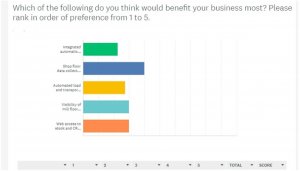MAKING TAX DIGITAL – HOW WILL THIS AFFECT YOU?
On the back of GDPR comes possible one of the biggest changes in tax reporting in the last 20 years.
So are you ready for Making Tax Digital?
What is Making Tax Digital
Her Majesty’s Revenue and Customs office have the ambition to become the most advanced tax administrations in the world. They see Making Tax Digital as fundamental to this.
Mel Stride MP, Financial Secretary to the Treasury, said:
“HMRC is transforming the tax administration so that it’s more effective, more efficient and easier for taxpayers. Today’s announcement means that around half a million businesses will be able to join Making Tax Digital and start filing their VAT returns online, making it easier to get their tax right the first time.”
More and more businesses use digital tools every day to help them operate – tax shouldn’t be different. This is a major step towards bringing VAT into the 21st century.
Theresa Middleton, Director for Making Tax Digital for Business, said:
Millions of people are already banking, paying bills and interacting with their suppliers and customers online. Using digital tools to help businesses manage their business income and expenses and get their tax right builds on this momentum and will also help them get more control over their finances.
MTD changes to the way the tax system works – transforming tax administration so that it is:
-
 more effective
more effective- more efficient
- easier for taxpayers to get their tax right
Or at least that’s what the objective is.
What does Making Tax Digital for VAT Mean to you?
Currently, you probably submit your VAT returns via paper or stand-alone electronic formats. From 1st of April, 2019 businesses with a taxable turnover above the VAT threshold will be required to use the Making Tax Digital service to link to the HMRC system. This means records will be kept digitally and you will need to use software to integrate to this system to submit your VAT returns.
There is an exception in that a small minority of VAT-registered businesses with more complex requirements will be exempt until 1 October 2019. This is to allow them sufficient time to test the service with there complex requirements before they have to join.
For the rest of us, it’s a pretty tight timeline.
Making Tax Digital for VAT timeline
October 2018
Open to sole traders and companies (except those which are part of a VAT group or VAT Division) provided they are up to date with their VAT. Those who trade with the EU, are based overseas, submit annually, make payments on account, use the VAT Flat Rate Scheme, and those newly registered for VAT that has not previously submitted a VAT return, are unable to join at this point. Those customers with a default surcharge within the last 24 months will be able to join the pilot by the end of October 2018.
Late 2018
Private testing begins with partnerships and those customers that trade with the EU.
Late 2018/Early 2019
Open to other sole traders and companies who are not up to date with their VAT, users of the Flat Rate Scheme and businesses newly registered for VAT that has not previously submitted a VAT return.
Early 2019
Open to partnerships and those customers that trade with the EU.
Spring 2019
A pilot open for Making Tax Digital customers that have been deferred.
April 2019
Making Tax Digital mandated for all customers (except those that have been deferred).
October 2019
Making Tax Digital mandated for customers that have been deferred. The 6-month deferral applies to customers who fall into one of the following categories: trusts, ‘not for profit’ organisations that are not set up as a company, VAT divisions, VAT groups, those public sector entities required to provide additional information on their VAT return (Government departments, NHS Trusts), local authorities, public corporations, traders based overseas, those required to make payments on account and annual accounting scheme users. The deferral will apply to around 3.5% of mandated customers.
One good piece of news is that the government announced in July 2017 that the MTD rollout would be slowed down. At one point all taxes were going to be mandated for integrated electronic reporting. Now it will only be VAT, well until at least April 2020.
For more details the government have published a communication pack which provides information on the scope, requirements of MTD please give it a read. MTD is not like GDPR or EU marking. It will happen on time, it is compulsory and you will need to comply from April 2019.
So if you are a Metalogic Customer what will it mean for you?
The iMetal team have been working hard in association with our Sage partners to ensure that you can comply with the legislation in all aspects. It will mean a software upgrade for you and you need to contact your account manager to book your slot as all our UK clients will need this upgrade and it is time sensitive.
Our Sage partners Accord will be sending out an email direct regarding Sage 300 solutions and requesting you fill in a questionnaire which will allow Accord and Metalogic to implement the correct solution at the right time scale to meet your requirements.
For our classic clients on Stockmaster it’s a similar story so again please don’t leave it late to get in touch. We will be contacting you to inform you about the upgrade and the details of what it involves but get ahead of the queue now!
For further information please contact your account manager or Andy Jackson Operations Manager.
Improving productivity using mobile devices
So what technology are metal distribution and processing companies looking for as they move into the next generation of software? With functionality like EDI, workflow mapping, and process optimization available in modern ERP systems like iMetal what else could drive a business to improved profitability?
Companies discuss the ease of implementing a new system, but then if you pick the right system, implementation and ongoing functionality improvements come as part of the package. The days of companies having to write customized functionality to ensure that their ERP solution works for them, and not they work for it, are over.
So how do you find out what is the next great thing in software for service centers, what is the magic bullet? Well one of the ways to find out is to ask them.
In a survey carried out across a wide range of service centres, the functionality request that came back clearly as the favorite was the ability to communicate with the shop floor via tablets and smartphones. Making the collection of data the movement of batches and processing as simple as possible for shop floor operatives.

So why is it that a technology already available not desired by companies? Many companies can already use hand-held scanners for bar code retrieval, terminals for updating systems and in some cases tablets with customized screens for data collection.
The answer seems to be in the next generation of employee who is heading for the metals sector.
Future generations of employees may not necessarily have the same work ethic or commitment as the employee of today. Gerry McGovern in his article Millennial Attitude* states that “millennials” are the least engaged entity within the US workforce, 70% of them do not feel in the right job and most will leave their jobs within the first three years, costing employers an average of $20,000 each.
They don’t particularly want job security because they believe it doesn’t exist anymore. What they want is the ability to train and develop and have a work environment that reflects their life environment with the same cool tools and “ease-of-use”. If correct, (and his comments are backed up by other sources) it means employers looking for new staff will struggle to train, retain or even employ the next generation if their systems are not up-to-date, make life easy and provide validation.
Therefore, the question of ease of use on the shop floor spreads to the whole system. With the requirement for data entry still high priority but also to be matched by flexible easy-to-use systems that can be run from smartphones or tablets. Couple this with the move of systems to the cloud, increases in home working and mobile data availability starts to become key.

With Android proving to be the mobile operating system of choice due to many factors companies like Honeywell are providing mobile devices running on Android. If you combine this with the ability to carry a subset of the database on the device it means operators can work outside of the range of WiFi connections, carry out tasks and update the main system upon their return to WiFi range. Incorporating hand-held devices with simple to use graphical icons for quickly recording production and material movement can simplify operations and improve productivity in the warehouse.
Finally, the introduction of voice recognition and image recognition means that some of the assumptions that we have made about the way our staff work may have to change.
It is on this basis that tests are currently being carried out where systems are controlled by the voice, and products are recognized by graphical images allowing physical inventories and material picking to be done whilst the controller has visibility of the operator’s activities. Sounds like science fiction, well it wasn’t that long ago that the telephone was a device that was attached to the wall and powered by cable.
The iMetal team are currently working on proof of concept developments with a number of selected customers to make these functions available in the next generation of the software.
*A Rebel’s Guide for Digital Transformation
Fundraising Trumped Again!
Steel tariffs were kept very much out of the question when Metalogic caught up with ‘Donald Trump’ last month as he hosted the Kids Out Question of Sport event with over 500 guests from Midlands based companies at Birmingham’s International Convention Centre for a night that put the fun into fundraising.

In this star studded evening ‘Donald Trump’ – who shares an uncanny resemblance to impressionist Mike Osman – appeared alongside quiz master and football legend Kevin Keegan! Metalogic were once again delighted to lend their support to Kids Out – the Fun and Happiness charity which gives disadvantaged children positive experiences to support them in becoming future members of our society and workforce.

The money raised at this event will be used as vital funds to continue to supply Fun Days and Toy Boxes to children in the Midlands area. Birmingham China Town Lions were also acknowledged for their help with the volunteers who were essential in ensuring the night was a complete triumph.
In addition to the quiz guests also took part in a raffle and two auctions, with some fantastic items up for grabs including a signed George Best photo montage, an evening for two at Nuthurst Grange, an Olympic shirt signed by Amy Williams. Available in the main auction was a unique David Bowie painting by Hertfordshire artist Rob Bishop, as well as a holiday to a luxury Ski Chalet in the French Alps.
Now in its 14th year, the KidsOut Question of Sport Gala Dinner is one of the most established and prestigious events in the Midlands corporate calendar and with over £51,000 raised in one evening these essential funds will help provide help, support and memorable days out making a real difference to young people’s lives.

Rick Smyth and Sara Williams, KidsOut Regional Co-chairs, said, “Supported by many of the region’s most successful businesses, the Question of Sport Gala Dinner is always one of the best attended dinners of the year. With over 500 guests, the event is always the perfect opportunity to entertain clients whilst having fun and supporting children less fortunate than ourselves locally.”
Metalogic Customers Benefit From Home Working Every Day
Modern companies need agile, flexible work spaces. Having migrated to homeworking over eight years ago Metalogic customers have realised the benefits as our support team continue to operate and are not hampered by weather, travel delays or any other such disruptions that can hinder many commuters.
Add to that the benefits of cloud back up Metalogic have a resilience that can be matched by only a few companies.
With organisations facilitating home working described as being happier and more productive places to work then we would like to join in acknowledging Friday 18th May as National Work from Home Day.
Read more from Work Wise UK on how working smarter can benefit your business.
Data Breaches Do they Affect My Business?
Data Breaches Do they Affect My Business?
With over 13 million people exposed to breaches, leaks, and mistakes in March 2018 the protection of data is becoming more and more important.
You may feel that as a business, in a not very “sexy” sector you are unlikely to be the target of criminals. You may believe your staff wont make human errors exposing credentials. Think again, with the forthcoming GDPR legislation, fines of up to 4% of Gross Revenue can be imposed and your information can become vulnerable for any number of reasons no matter where it is being stored.

But it’s not just the legal requirement that should be driving senior management to focus on breaches and leaks that could affect their business. The leaks recorded over the past month affected over 13 million people and potentially caused loss of revenue, distress to staff and clients and detract focus from the core operations. With the growth in cyber crime at all levels it’s more important than ever to be vigilant and proactive.
13,601,000 was the exact total number of account and data records exposed due to leaks, breaches, and mistakes in March. However,the number of people affected by any given breach frequently changes from the initial reports. For example, Equifax reported in March that 2.4 million more people were impacted by its 2017 breach, and Facebook announced the Cambridge Analytica breach potentially impacted 37 million more individuals than previously disclosed. You may question what this has to do with you? With only six major industries affected by large-scale breaches and data leaks in March you may feel that six doesn’t sound like a big number, does it? But when you take a step back and begin looking at the scope, you can see that breaches and leaks touched a wide cross section of where your data lives, including organizations in retail, healthcare, education, and government, as well as the technology and finance sectors.
Notable breaches by industry included:
- Healthcare: More than 70,000 Tufts Health Plan members have had their names, addresses and member ID numbers exposed through a mailing mistake.
- Government: Over 21,000 marines, sailors, and civilians that had their personal and financial information leaked after an email was sent to the wrong party by the U.S. Marine Corps.
- Retail: Walmart’s jewellery partner, MBM Company, had the personal information of 1.3 million people exposed on an open Amazon S3 bucket, and 880,000 Orbitz customers may have had their payment card information breached.
- Education: An extensive data breach at Florida Virtual School affected more than 368,000 current and former students and 2,000 teachers.

With the increased use of email as a communication tool the number of data leaks due to mailing errors will only increase. From the numbers listed you can see, human error can lead to massive data leaks.
The top three most-exposed types of data in March were: 1) Names, 2) Addresses, and 3) Financial Information. Significant breaches included:
-
-
- 10 million National Lottery players in the U.K. were warned that their accounts, including financial information, may have been accessed in a breach
- Applebee’s customers across 167 locations may have had their credit card information breached.
- Up to 15,000 people may have had their personal financial and health information breached through a break-in at Fresno State University.
-
It’s worth noting that the data exposure from March breaches wasn’t restricted to names, addresses, and financial information.
So what should you be doing about it?
Engage your staff.
Using engaging training, tools and thought-provoking activities, organisations can make staff aware of the daily cyber risks they face and suggest actions and procedures to minimise such risks.
A staff awareness programme should be an ongoing process that begins at induction and is reinforced by regular updates throughout the year and/or whenever staff-related security incidents occur.
An effective staff awareness programme should:
-
-
-
-
- Help companies identify potential problems;
- Help staff understand the consequences of their actions;
- Ensure procedures are followed consistently; and
- Ensure staff are fully aware of corporate compliance requirements for regulations and frameworks such as the General Data Protection Regulation (GDPR), the Payment Card Industry Data Security Standard (PCI DSS), ISO 27001, the Network and Information Security (NIS) Directive and other cyber security requirements.
-
-
-
Companies like IT Governance can provide guidance and resource in many areas including general staff training.
Compliance Accreditation.
Secondly look to get external advice on networks, systems and look for your IT suppliers to either have or be working towards ISO/IEC 27001:2013 (ISO 27001) This is the international standard that describes best practice for an ISMS (information security management system). By achieving accredited certification to ISO 27001 it demonstrates that your IT partner is following information security best practice, and provides an independent, expert verification that information security is managed in line with international best practice and business objectives.
GDPR
If you haven’t started your GDPR programme then you may be leaving it a little late. You can find more information about in general here and more specific information from the Guide to the General Data Protection Regulation (GDPR) produced by the information commissioner’s office.
Jonas Metals and Metalogic Activities.
With seemingly new legislation being released every month and requirements like Tax digitalisation heading our way, the security of your data takes a higher and higher priority.
With this in mind, security, which has always been part of the DNA of our systems have now been stepped up to a another level.
With technologies like containerisation and the implementation of a programme to achieve ISO 27001, the security of your data is at the heart of our software design. If you have any doubts or concerns or you have an ERP system that you think might not be meeting all the challenges of the modern world then give us a call or drop us an email. We are here to help.

European Commission Investigation into Imports of Steel Products
We would like to share with you the contents of a letter sent by ISTA to the Rt. Hon. Greg Hands MP, Minister of State for International Trade, concerning the European Commission investigation into imports of steel products.
European Commission Investigation into Imports of Steel Products
ISTA are a Trade association based in the UK representing companies in the UK and the rest of Europe involved with the importation of steel products from both inside and outside the EU. Our members are Steel traders, including the trading arm of some EU mills, Independent Service Centres, Independent Steel fabricators, all ultimately supplying British and European industry, as well as Ports, shipping and logistics companies who all depend on steel to be supplied from both inside and outside the EU. By Independent Steel Service Centres and Steel fabricators, we refer to those that are not owned by EU Steel Manufacturers.
ISTA members are greatly concerned with the EU Commission’s recent announcement of a notice of initiation of a safeguard investigation concerning imports of steel products and feel that the effect of this notice cannot have been given sufficient prior consideration. This investigation affects the import of most steel products in to the EU from outside of the EU.
The effect of this announcement is instantaneous and devastating.
We are informed by the EU Commission that provisional measures could be taken anything between one and five months from the initiation of the investigation. These measures could be provisional duties or tariff free quotas, either of which would be devastating. Either importers will have to pay duties which were not previously budgeted for, or it is possible that shipments may be turned away if tariff free quotas are put in place which are subsequently filled prior to the arrival of pre-purchased goods.
It has brought about grave uncertainty for those companies who have already bought and sold material from outside the EU which will be arriving over the coming months and has also paralysed any new business. Members report that, as a result of the uncertainty caused by the investigation, they are unable to enter into new contracts with their overseas suppliers.
Furthermore, there is fear that having been granted tariff free status in the USA, EU steel mills will find that they attract a better price in the USA than in the EU and may export capacity to the USA leaving steel supply in the EU sparse.
Ramifications of this investigation are also of concern. For example, a British port specialising in the handling of steel products from both the EU and from outside the EU, reports that to continue and survive, its business requires steel trading companies to utilise its stevedoring, handling, storing and delivery facilities within the port and the wider community. These services would cease if sufficient steel was not imported into the UK through its facility and, no doubt, others too, leaving a large number of businesses and employees out of work.
Having recently spoken to a member of the EU Commission who is involved in this investigation, they appear to be fully aware of the effect of this action but could only describe our plight as ‘unfortunate’.
We have asked a number of questions directly to the EU Commission, demonstrated below, but we were not able to get any guidance whatsoever from the Commission.
Question 1 – Can you assure us that any material purchased from outside the EU prior to this notice will be exempt from duty or quota restrictions.
Answer: No.
Question 2 – Can we consider that any material arriving in the EU within the next 9 months will be exempt from duty or quota restrictions.
Answer: No
Question 3 – If tariff free quotas are to be introduced, please advise us how they will be calculated, will it be by country of origin? How will these quotas be distributed throughout the EU – will it be by country within the EU?
Answer: Whilst the investigation is ongoing and they are collecting data, they cannot offer any recommendations or guidance.
A further comment was that the EU Commission must balance Union interests – that of steel manufacturers and of institutions representing businesses ‘like ours’.
Whilst we are still gathering our figures, we are aware that there are at least as many, and probably more, people employed in industries in the EU who depend on steel imports than the number employed at steel manufacturing mills.
We are writing to inform you of the consequences of this investigation. Any influence you may have to bring about a quick decision or at least some answers to our questions would be much appreciated.
For your further guidance, we have requested the Commission to withdraw this investigation.
We would be happy to meet you.
Yours sincerely,
Simone Jordan
Chairwoman
iMetal on the move bringing increased customer benefits
As iMetal increases it’s geographical reach with unprecedented growth in the global marketplace this too brings new challenges to our team.
Professional Services Consultant Geoff Kendell has been working in the USA and Canada. Working with a large multi-metals distribution operation Geoff has been looking at business processes and how imetal can assist in streamlining and enhancing their operations, in particular they found the multi length cutting applications, speed in order entry and material optimization a major advantage over other products of a similar nature. The utilization of process planning and scheduling will revolutionize their business in terms of releasing capacity when handling their growing order book

Whilst on his travels Geoff has spent some time in Canada along with Leigh Harrison, MD of JMD working with a multi metals operation who are looking to add shop floor data collection and production planning to their operation which will provide them with the ability to speed up order-to-dispatch time
Steve Adams, Customer Support has been working in the California offices of JMUSA assisting the USA support desk by providing training and support. This facility will be looking to go live from May and will not only be providing support to US based customers but also enabling UK and EU customers who work shift systems to access the support desk on an out-of-normal hours basis in circumstances where they have a shift or 24 hour working capacity.
Using Cloud based technology developed in the UK operation will provide customers a single call point and by sharing the cloud based applications whilst enabling the Jonas Metals Division to have common information across the continents.

Meanwhile Mark Beard, PS consultant is in Serbia reviewing the business processes of a steel stockholder/processor who are looking to implement iMetal – this will be the first time that iMetal will be in operation in Eastern Europe all thanks to the increasing internationalization of iMetal.
Leigh Harrison has been working on the development of new products specifically for the USA market and also on recruiting additional staff resources to work with the growing arm of the Jonas Metals team.
iMetal Enhancements – What would you like to see?
Continued investment in functionality for iMetal has led to enhancements like multi-length cutting with material and capacity optimization. Following improvements in scanning and electronic documents and the addition of process planning and scheduling functionality, the Metalogic team are now looking to continue to add enhancements to the applications that will assist clients in productivity improvement and cost savings.
With such a geographically wide spread customer base it would be logistically challenging to gather ideas and suggestions for developments in a timely manner; therefore we feel that an online survey is the most appropriate way to understand your requirement.
This simple ONE QUESTION survey* will take seconds to complete yet will provide key guidelines to the team on the ideas you think would benefit your businesses most. Please rank answers in order of priority from 1 to 5.
Future clients get in touch here to learn how iMetal can benefit your business?
THANK YOU FOR YOUR PARTICIPATION.
*Please don’t forget to scroll down and click the DONE button to submit your survey.
Built by JMB Creative

